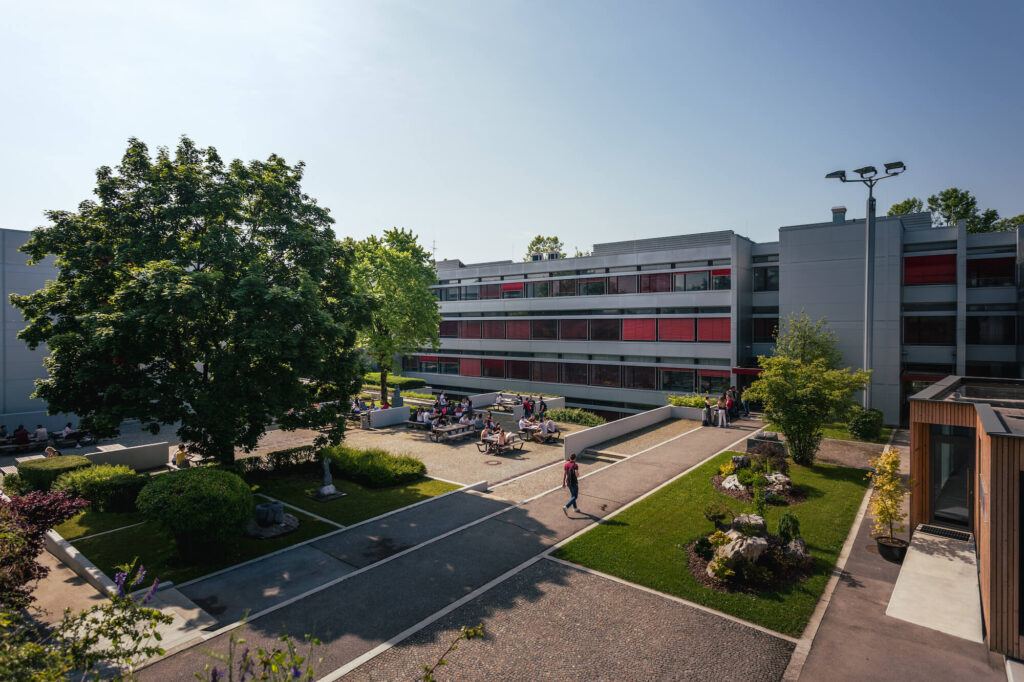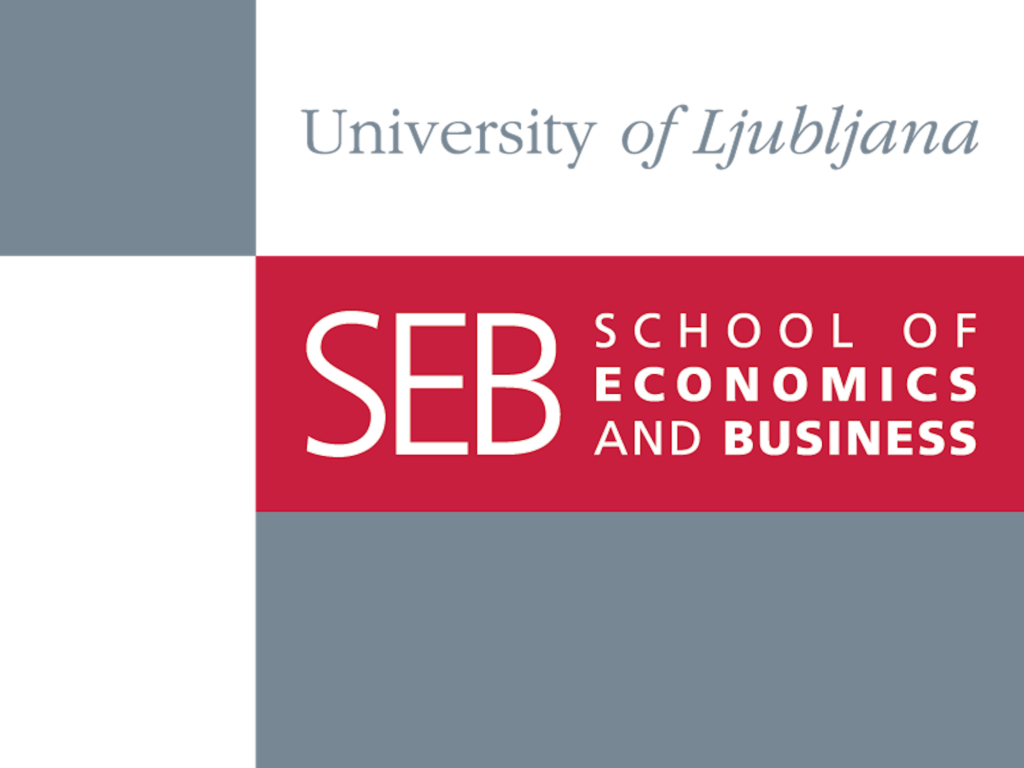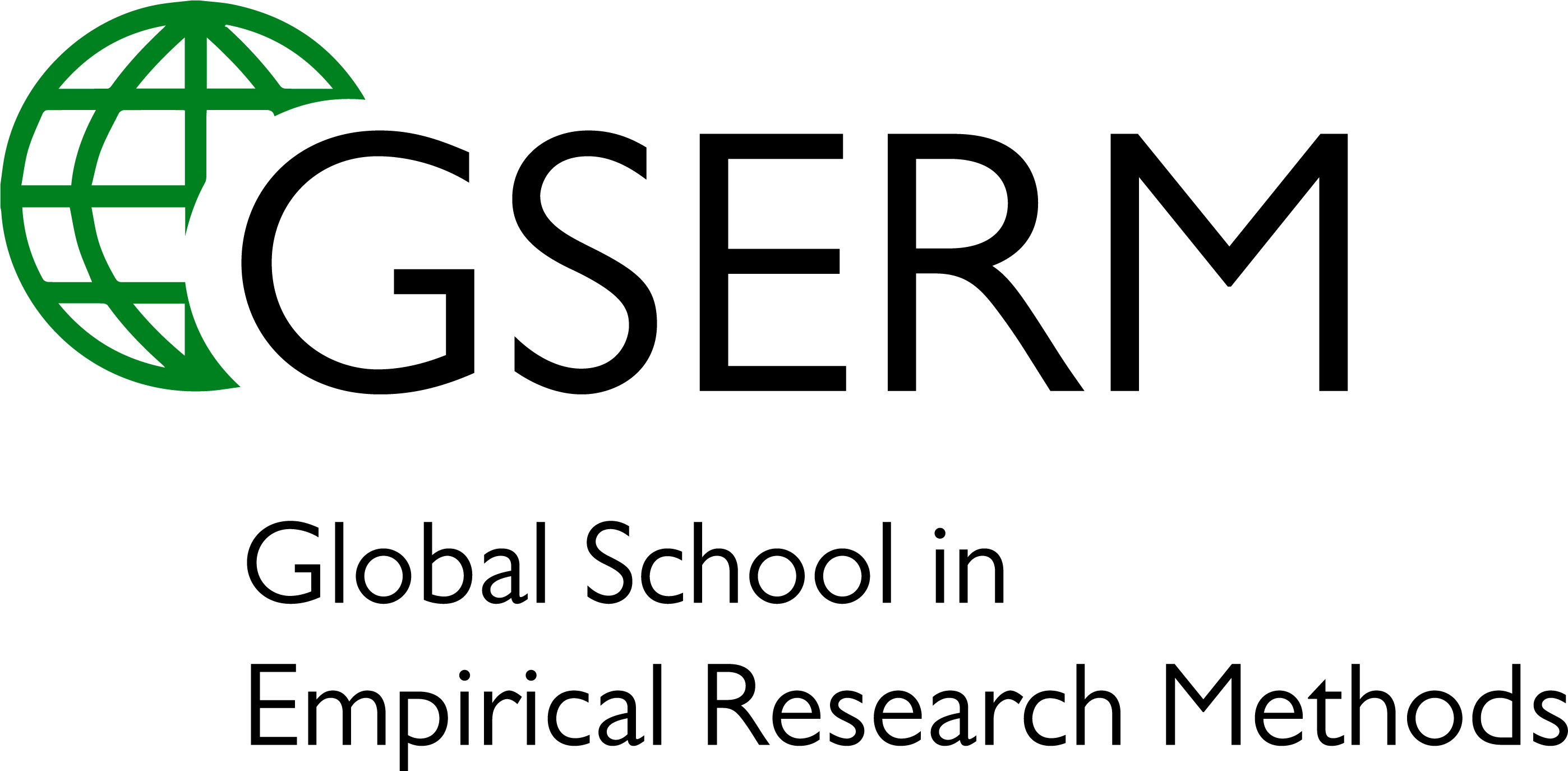Slovenia, University of Ljubljana
School of Economics and Business
University of Ljubljana is the oldest and largest higher education and scientific research institution in Slovenia. University with its rich tradition was founded in 1919. It has approximately 40,000 undergraduate and postgraduate students and employs approximately 6,000 higher education teachers, researchers, assistants and administrative staff in 23 faculties and three arts academies. The central building, all three academies and faculties are located in the centre.
The classes were well structured and conducted at an easy pace and the lecturers extremely knowledgeable and engaging. The dinners at the castle and the traditional restaurant were absolutely splendid! I especially liked the printed group photograph that we received at the farewell dinner as a memento of our time spent here. Ljubljana surprised me with its vibrant and lively culture. The social events were great to get to know other students and to explore not just Ljubljana but also other parts of Slovenia. I was a wonderful experience.
~ Vanessa Rodrigues, PhD student, Linköping University (participated in 2018)
Slovenia, University of Ljubljana
School of Economics and Business
University of Ljubljana is the oldest and largest higher education and scientific research institution in Slovenia. University with its rich tradition was founded in 1919. It has approximately 40,000 undergraduate and postgraduate students and employs approximately 6,000 higher education teachers, researchers, assistants and administrative staff in 23 faculties and three arts academies. The central building, all three academies and faculties are located in the centre.
The classes were well structured and conducted at an easy pace and the lecturers extremely knowledgeable and engaging. The dinners at the castle and the traditional restaurant were absolutely splendid! I especially liked the printed group photograph that we received at the farewell dinner as a memento of our time spent here. Ljubljana surprised me with its vibrant and lively culture. The social events were great to get to know other students and to explore not just Ljubljana but also other parts of Slovenia. I was a wonderful experience.
~ Vanessa Rodrigues, PhD student, Linköping University (participated in 2018)


The School of Economics and Business is a member of the University of Ljubljana and is both a national leader and an internationally recognised academic and research institution in the fields of business and economics. They strive to become perceived as the world-renowned institution for the quality of their academic programmes and achievements in education and research.
1919
founded in
4700+
students
45% international
4
doctoral programme
90+
professors
200+
partner universities
worldwide
All you need to know
Accommodation
Participants of GSERM Ljubljana 2024 can organize their accommodation individually or selected hotels can be requested via University of Ljubljana.
A lot of options that vary in price can be found on the following platforms:
Accommodation at a special price via University of Ljubljana
Austria Trend Hotel: https://www.austria-trend.at
Accommodation in campus area
Deluxe room: 1 person 91 EUR per night; 2 people 110 EUR per night
Executive room: 1 person 116 EUR per night; 2 people 135 EUR per night
City hotel: https://www.cityhotel.si/
Accommodation in city centre
Standard room: 65 EUR per night
Comfort room: 75 EUR per night (surcharge for additional person: 12 EUR per night)
Hotel Slon: https://www.hotelslon.com/
Accommodation in city centre
Economy room: 1 person: 89 EUR
Comfort room: 1 person 99 EUR; 2 people 114 EUR
Tourist tax at additional charge. Specific reservation links for the above mentioned hotels can be requested at short.programmes@ef.uni-lj.si
Accommodation in Ljubljana city centre
- Central Hotel
- B&B Hotel Ljubljana Park
- Hotel Emonec
- BIT Center Hotel Ljubljana
Accommodation in Ljubljana Bezigrad (campus area)
- Dragon’s Dream Hostel Ljubljana
- Holiday Inn Express Ljubljana
Address of University of Ljubljana, School of Economics and Business
Kardeljeva ploščad 17, SI-1000 Ljubljana
Important
Please thoroughly check the accommodation and travel conditions regarding cancellation fees! Do not place any nonrefundable bookings. In case the teaching format will be changed to online, GSERM can not reimburse any accommodation and travel cancellation fees.
About Slovenia and Ljubljana
Slovenia is situated in the heart of Europe – where the Alps meet the Mediterranean and the Pannonian Plain meets the Karst. The city of Ljubljana is classified as a mid-sized European city, but it has preserved its small-town friendliness and relaxed atmosphere while providing all the facilities of a modern capital. Distances between places in Slovenia are short, which makes Ljubljana a perfect base for exploring Slovenia’s diverse beauty.
Slovenia is the European Region of Gastronomy 2021. The prestigious title is reflected in the bond between sustainable and locally grown produce and the supreme creativity of renowned chefs. Slovenian restaurants have impressed gastronomic experts who awarded them Michelin stars for the first time in 2020 and also the toques of Gault & Millau for the second consecutive year. Slovenian wines are among the best in the world.
Healthy living and a sporting heart permeates every facet of life. In terms of sporting achievements per capita, Slovenia certainly belongs at the very top in the world, and is a true phenomenon in this sense. Since sport has a special place in Slovenia, a new national holiday – Day of Slovenian Sport – is dedicated to it.
Cultural Advice
Slovenia has a polycentric culture. For example, Slovenians are naturally indirect communicators but can moderate their behaviour when dealing with people who come from cultures where more direct communication is the norm.
Slovene or Slovenian belongs to the family of South Slavic languages. It is spoken by approximately 2 million speakers. Slovene is one of the rare languages to have preserved the dual grammatical number from Proto-Indo-European. Also, Slovene and Slovak are the two modern Slavic languages whose names for themselves literally mean “Slavic”.
Although the country is relatively small, there are more than 32 different dialects spoken, which can be grouped into 7 larger dialect segments. Slovenes who come from opposite parts of country may have enormous difficulties to understand each other. The diversity in language is due to the influences of neighbouring countries as well as the mountainous nature of the country, which has led to isolated language development.
Useful words and phrases
The majority of Slovenians are fluent in at least one foreign language, usually English or German but additionally also Italian or Croatian, depending on the region. Knowing few Slovenian words can be still very useful.
Slovenia has a rich culinary tradition which is influenced by its climate and its location at the crossroads of central Europe. Slovene culinary heritage has influences of Mediterranean, Alpine, and Eastern European cultures. Meals are an important part of Slovene life, and enjoying a snack or a glass of wine at a café with friends is a typical social activity. Every region in Slovenia has its own specialties, however, most of Slovenia’s oldest traditional dishes consist flour, buckwheat, or barley, as well as potatoes and cabbage. Slovenia also produces a variety of wines. Almost 70% of Slovenian wines fulfil the criteria for quality and premium wines, which is definitely a result of a highly-developed wine culture and demanding wine lovers.

